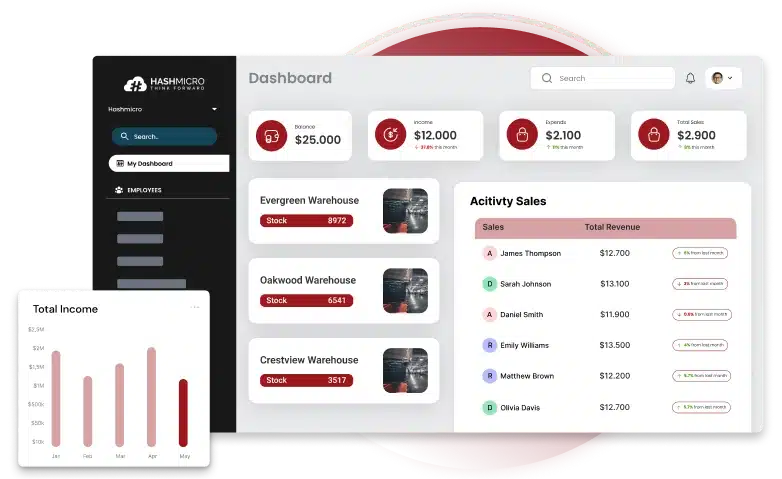Many businesses continue to use outdated infrastructure or conventional on-premise solutions, which may limit innovation, scalability, and agility. Companies in Singapore run a risk of experiencing operational inefficiencies, high IT maintenance costs, restricted data accessibility, and trouble responding to market demands if they don’t utilize cloud adoption.
These issues can have a significant negative impact on sustainability and long-term growth, as cloud system has become a cornerstone of business transformation worldwide. Fortunately, there’s a simple solution to these issues: adopting a cloud-based system for your business operations.
Whether you’re an IT specialist, business leader, or simply interested in digital transformation, continue reading this article, as it will explain how cloud adoption is transforming the way Singaporean businesses operate.
Key Takeaways
|
What is Cloud Adoption?
In Singapore, cloud adoption refers to the process by which companies, government departments, and other institutions migrate their software, data storage, and IT infrastructure from conventional on-premise systems to cloud-based alternatives.
Industries such as finance, healthcare, retail, and logistics are increasingly transitioning to the cloud to enhance operational efficiency, improve data security, support remote work, and scale their services more quickly.
How does Cloud Adoption Work?
In Singapore, cloud adoption typically follows a planned and methodical approach, supported by both strong government backing and technological readiness.
Here’s how the adoption cloud process generally works for an organization
1. Assessment and planning
Companies begin by assessing their business objectives, compliance needs, and current IT infrastructure.
In Singapore, this often involves assessing compliance with industry-specific standards and regional laws, such as the Personal Data Protection Act (PDPA), particularly in the financial and medical industries.
2. Choosing a model and migration data
Businesses decide between different cloud models based on their needs. Many Singaporean companies adopt multi-cloud strategies to avoid vendor lock-in and enhance system resilience.
Businesses move workloads, databases, and apps to the cloud. To ensure a seamless transition, cloud service providers and managed service partners frequently help with this process.
3. Integration and optimization
Following the migration, companies integrate cloud solutions with their current workflows and tools. Additionally, they utilize technologies such as analytics, monitoring, and auto-scaling to enhance security, reduce costs, and improve performance—all of which are crucial for Singapore’s data-driven economy.
Click the banner below to discover how HashMicro can simplify your cloud adoption, and let us help you get up to 70% funding from the CTC Grant.
Why does Cloud Adoption Matter?
 Cloud adoption in Singapore is significant because it supports the country’s economic competitiveness and its digital transformation agenda. Cloud solutions enable businesses to rapidly expand their operations, reduce their reliance on expensive on-premises equipment, and adopt new technologies such as automation, data analytics, and artificial intelligence (AI).
Cloud adoption in Singapore is significant because it supports the country’s economic competitiveness and its digital transformation agenda. Cloud solutions enable businesses to rapidly expand their operations, reduce their reliance on expensive on-premises equipment, and adopt new technologies such as automation, data analytics, and artificial intelligence (AI).
Adoption of the cloud also helps address critical local issues, including the need for real-time data access in a hybrid work culture, growing cybersecurity concerns, and physical space limitations for data centers. Additionally, it guarantees adherence to Singapore’s strict data privacy laws, including the Personal Data Protection Act (PDPA).
What are the Benefits of Cloud Adoption?
Since Singapore’s businesses must adopt a cloud system, it’s also essential to understand the core benefits of cloud adoption for staying ahead.
Here are the benefits of it in Singapore:
1. Enhanced business agility and scalability
The adoption of the cloud enables Singaporean companies to promptly introduce new services, scale resources as needed, and respond to market shifts more quickly.
This agility is essential in a competitive, innovation-driven market where success is determined by speed and adaptability.
2. Cost efficiency and operational optimization
Organizations that migrate to the cloud eliminate the need for significant capital investments in IT maintenance and physical servers.
Instead, customers only pay for what they use, which enhances IT performance and efficiency while reducing operating expenses.
3. Improved data security and regulatory compliance
As previously mentioned, Singapore has strict privacy regulations, such as the PDPA, and credible cloud providers offer robust security features, including encryption, access control, and data backups.
This helps companies maintain compliance while protecting private data from online threats.
Simplify your Cloud Adoption Processes with HashMicro Cloud System

HashMicro Cloud System simplifies cloud adoption by offering a comprehensive, all-in-one ERP solution that is entirely cloud-based, adaptable, and customizable to meet the unique needs of any company.
Businesses can utilize HashMicro’s consolidated platform to manage operations — including finance, inventory, sales, HR, and more — from a single, cloud-accessible interface, eliminating the need to navigate complex IT configurations or interact with multiple separate systems.
HashMicro also offers end-to-end implementation support, including data migration, system integration, staff training, and post-deployment assistance. The platform is built with robust security protocols, ensuring data protection and compliance with regulations such as Singapore’s PDPA.
Here are the key features of the HashMicro ERP System:
- Built-in BI (Business Intelligence): Built-in Business Intelligence (BI) tools powered by cloud technology to gain real-time insights, visualize performance metrics, and make data-driven decisions — all from anywhere, on any device.
- Hashy AI: With cloud-based AI-generated reports and explainers, gain instant, accurate insights into your business performance.
- Access-level: Prevent data theft, restrict unauthorized access to sensitive information, set access levels for each employee, and enable managers to monitor all staff activities easily.
- Flexible hosting methods: Enables flexibility and scalability through the cloud, as well as greater control and data security through on-premise solutions, depending on the company’s needs.
- Real-time data access & automation: With real-time dashboards and automated workflows, HashMicro empowers faster decision-making and reduces manual tasks, helping businesses leverage the full potential of the cloud for productivity and responsiveness.
Conclusion
Cloud adoption provides a foundation for agility, innovation, and resilience as companies navigate increasing customer expectations, rapid technological advancements, and evolving data security requirements.
HashMicro Cloud System streamlines cloud adoption by offering a fully integrated, cloud-based ERP system that centralizes all core business functions.
From accounting and inventory to HR, CRM, and procurement — in one secure and accessible platform. This eliminates the need for fragmented tools or complex on-premise systems, making it easier for businesses to transition to the cloud without disruption.
Try our free demo and bring your company to get up to 70% funding support from the CTC Grant today.

FAQ About Cloud Adoption
-
What is a cloud adoption strategy?
Yes, POS can be part of an ERP system. ERP focuses on sales transactions, while ERP integrates broader business processes.
-
What are the different types of cloud adoption?
Integration streamlines data flow, enhances real-time reporting, improves inventory management, and provides better insights into sales.
-
What is a key challenge in cloud adoption?
Yes, but as a business grows, using an ERP alongside POS improves efficiency and supports scalability.

































